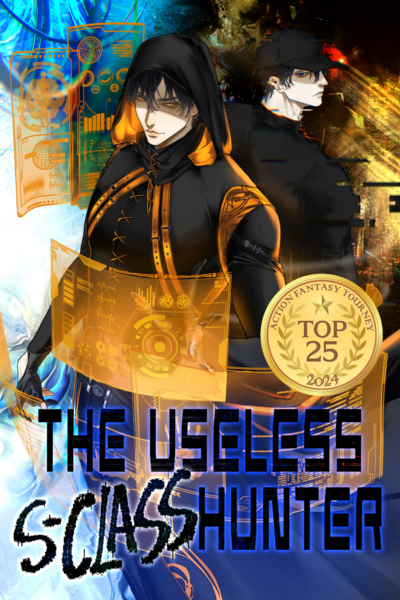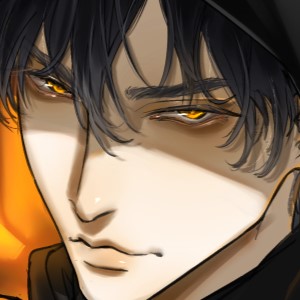Ash
Aug 19, 2024
Atlas had been jaded, ignorant and reckless at nineteen.
His life back then was full of the sort of risk-taking that tended to manifest early when you were born poor and tragic.
He’d grown up watching the older kids adopt the bad habits first — usually whatever would kill them the fastest and hurt the most on the way out. It seemed right, somehow.
Of course, the staff at the orphanage tried to teach them otherwise. He couldn’t fault them for it. But for all it was a decent facility that did the best it could, it still mostly churned out unwanted byproducts. Scrap.
Kids who came with an expiration date became adults with nothing to lose. They could at least try to have fun while it lasted.
Atlas learned by the older orphans’ example, and a year out, he drank too much, slept too little, and chain-smoked the pain away between overnights at some dime-a-dozen convenience store on the corner.
The place had been an easy pick when he’d left the boys’ dormitory with a rucksack and a week’s worth of rent, courtesy of the city’s reluctant taxpayers. The management didn’t ask too many questions, paid him mostly on time, and kept to themselves. No one went in there expecting exceptional service, only someone to scan their things and run their debit card without falling asleep in between. Atlas was caustic and impatient and rude, and it wasn’t a problem. No one seemed to care.
The store was the same one that used to let him pocket the old cigarettes if he mopped floors for them after school. He’d figured there was as good of a place as any. Familiar, at least.
And it was fine. It was something. It let him get his trashy apartment, and eat his pre-packaged carbs, and buy the little things that were supposed to make the transition to adulthood with you when you had parents. He got them slowly, in order of importance. Nail clippers. A working cell phone. A spare toothbrush.
That whole place burned in the Great Collapse, cigarettes and all.
Atlas could not have cared less if he tried. It was what it was.
Wasn’t it strange, how when everything else was sort of terrible for you anyway, emergencies felt almost like a relief?
For one, blissful night the Great Collapse had been Atlas’ catharsis. A free trial for everyone else of what it felt like to lose all of the damn time.
So when the end seemed near, and the world screamed louder than Atlas ever had, his day-to-day unease and uncertainty gave way almost immediately to a sort of preternatural calm. It was reassuring, in a weird way. Kind of like a promise that he’d made the right call by amounting to nothing — that none of it would have mattered in the end, anyway. Making an effort only to lose it all in an unavoidable calamity? Embarrassing.
There were no choices to be made when the world was on fire. No consequences to minimize. No circumstances of birth to bemoan. He was powerless, but so was everyone else for once, and wasn’t that almost poetic?
Atlas watched the city burn with a carton of stale tobacco and a grin that rivaled the starlight he could make out just above the smoke.
Except…he’d lived.
Too many did not, but Atlas — waiting with patience and humor for that final, permanent end — fell asleep against the wall of his terrible apartment steps and woke up no worse for the wear, save for a crick in his neck and the soot on his nose.
No one prepared you for the comedown of something like that.
His first shift back at a different store, a different street, felt vacant. Everything was desaturated and monochromatic. Even more pointless than before. It was worse, somehow. All of these incredible, fascinating new people and then Atlas Cane, who had never once been interesting or important a single day in is life.
So he’d gone to get tested with all of the wry, spiteful, dry humor of a man with nothing to lose. An orphan for a decade, eking out a living and squandering his health and time like there weren’t people who would kill for it.
“S-Class.”
The final joke. The biggest irony of all. The cruelest, meanest lie in the end. Even worse than the promise of ‘…a family, if he just polished his shoes, and combed his hair, and played nicely with the other boys and girls, Atlas.’
All that agony, and horror, and loss, and none of it saved him.
It would have been better if it had taken him instead.
Fate could have spared someone who mattered.
___
“There’s just no way,” Charon told him, eyes narrow and dark and mean. “We have never seen a portal re-open before. That doesn’t make any sense.”
Atlas wasn’t sure what he’d been expecting, exactly, but it should have been this. Denial, he knew, was potent — and it wasn’t like Charon respected the opinion of his washed up ‘mentor.’ To Charon, Atlas would always be the loser who’d flunked out of Last Bastion while he was still a kid. No one would want to believe that The Colossus, the portal that had shredded their best and brightest with the ease of wet paper, was back.
“Believe me or not,” Atlas said with a shrug. The air smelled a lot like it had that day — thick with the tang of burning rubber and gasoline. Light gray ash floated down onto the tip of his nose as lazily as snowflakes. Atlas brushed it away with the back of his hand and shook it into the grass. “But the shape, the location, even the time of day — it all fits. If it really is a recurrence, we at least have some basic information from the survivor reports. It would be stupid to waste the one advantage we’ve got.”
“He may have a point,” Izar murmured, seemingly half somewhere else as he scrolled through what Atlas assumed was the incident report. “It’s an unusually good match for the circumstances of Colossus.”
“There is no precedent,” Charon insisted.
“There was no precedent then, either,” Atlas reminded him. “S-Grades don’t seem to adhere to patterns or sense. They’re not predictable. Or at least, we can’t predict them when this is only the second appearance in ten years.”
The final bus from city center was arriving now, streams of hunters coming down the short ramp and directed by Portal Group personnel as they were arranged in real time into strike teams. Last Bastion would be at the helm, with the others maintaining the back line and evacuating any surviving members of the public caught in the portal’s thrall.
The creatures in portals like to sneak up on you if you weren’t careful. You needed a strong back line.
They would be entering the portal any moment now. The last piece of Atlas that hadn’t given up swelled with a sudden spike of anxiety that he ruthlessly quashed before it could grow out of hand into something dangerous, like hope.
“It’s unlikely,” Charon murmured, but his expression was dire now.
Atlas rolled his eyes. “Come on. What do you even have to lose by checking? Even if they’re different you need to examine the report, anyway. It’s the only S-Grade we’ve got.”
Charon curled his lip and stalked away to strategize with the rest of the team. Izar remained with Atlas as the only other person here not a part of Last Bastion.
“You’d be better off in a strike team,” Atlas instructed him, rolling back onto his heels and shoving his hands back into his pockets. He pressed the pin into his palm and held it tight. “You’re much more likely to die up here. You’re a B-Class, you’re going to fall behind.”
“It’s up to me to keep an eye on you,” Izar said with a frown. “I can’t do that from the back.”
“I’m going to die either way. Zig would hate it if I took you with me.”
“Zig will understand,” Izar said softly. For just a moment, Atlas thought he could see something of the old Izar on his face. The one who was gentler and kinder, who visited the store to check on him with a discerning eye. But it was gone so quickly it could have just been Atlas’ imagination. “You have the artifacts?”
“Of course I have the artifacts. Did you think I’d just leave them in the car?”
Izar sighed and took a long breath through his nose. The rest of the team began moving towards the entrypoint, and Izar guided Atlas along with a hand on his shoulder, cool and steady. “Just stay close to me, and try and figure out what you may have awakened. It’s interesting that it seemed to manifest with the S-Grade. I’m curious if it’s related.”
But Atlas had been burned too many times before to think he was the sort of guy who got a generational power linked to the Collapse-gate, so he just shrugged again, popped a piece of gum in his mouth, and hoped that whatever took him out would have the decency to make it deeply inconvenient for Charon and his merry band of idiots.
AKG
Creator
#Tapas_AF_Tourney
TheFlyingBookworm
Top comment
Atlas really said 'please let my death be as inconvenient as f@$king possible to all these haters' 😅
Recommendation for you
The Useless S-Class Hunter
23.8k views509 subscribers
Atlas Cane is useless. He's famous for it, actually.
Or he was, until the new portals killed half of world-famous team Last Bastion, and Atlas' true skill awakened in the aftermath.
Atlas Cane was supposed to be useless.
He's not. Not anymore.
Banner/Cover/Thumbnail Art: NOREI
Or he was, until the new portals killed half of world-famous team Last Bastion, and Atlas' true skill awakened in the aftermath.
Atlas Cane was supposed to be useless.
He's not. Not anymore.
Banner/Cover/Thumbnail Art: NOREI













Comments (5)
See all